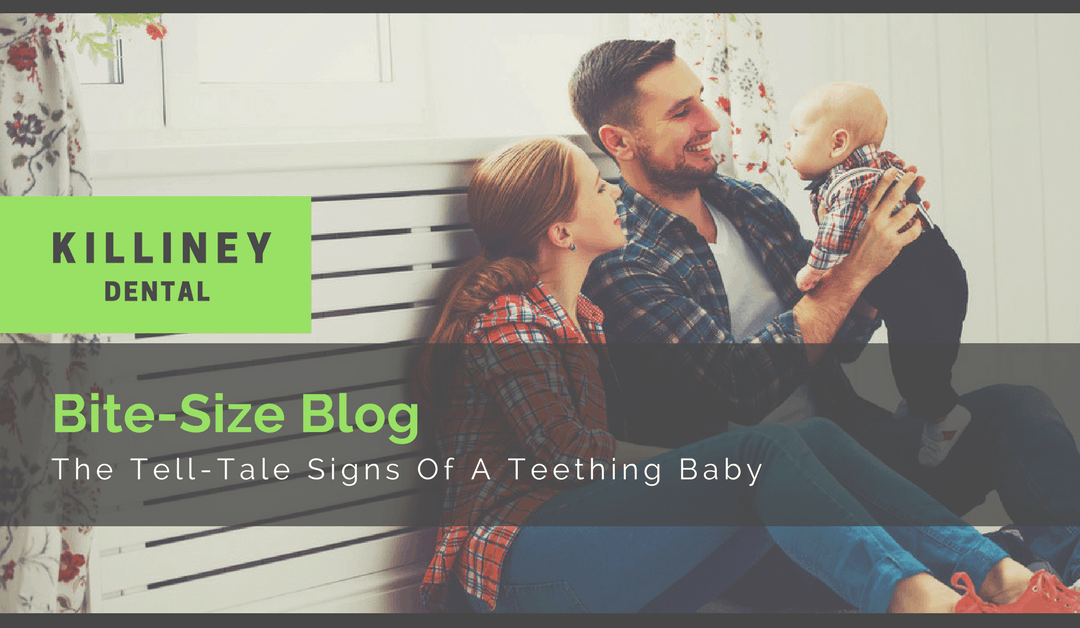How to Spot Them Quickly and Bring Relief:
Becoming a parent is a life-changing event, and no matter how much joy it brings, you can never be fully prepared. Looking after an infant can occasionally push you to your wits’ end, especially if it’s your first time around. One of the hardest things to cope with is when your baby is fractious, and spends far more time crying and griping than smiling or sleeping. This is even more difficult when you can’t find the cause of your child’s distress.
However, one thing that all children go through is teething, and while the symptoms can vary from baby to baby, it is one of the prime suspects for unexplained upset in a young child. Recognizing the signs is the first step in soothing the problem and bringing a little relief for everybody.
Increased Drooling
It’s totally normal for a baby to drool, but if this noticeably increases in amount and frequency, then it’s usually a clear sign that a tooth is on its way. Keep a stock of clean bibs, wipes, and replacement clothes handy, as letting your infant’s neck and chest stay drenched can lead to chapped and sore skin.
Rash Around the Mouth
Increased drooling can also lead to a rash around your baby’s mouth, no matter how gently you try to keep their face clean. This can also happen as clumsy infant hands try to rub away the irritation of teething gums. In both cases, lightly applying a mild baby lotion on to the dry skin can help soothe the rash.
Increased Irritability
It doesn’t usually take a lot for a baby to become irritable, and they have few other ways of communicating. However, when you’ve tried feeding, burping, entertaining, and getting the child to sleep, and nothing seems to be working, then teething could well be the culprit. Try applying a soothing gel to the gums or using a baby teething powder. Don’t rely too much on infant painkilling medication without checking with a doctor, as your baby could be suffering from a mild bug or infection which needs attention rather than dulling with medicine.
Biting Down
To relieve the discomfort of their tingling gums, infants will often take to biting down on any object within reach, and unfortunately, this can often include tender parts of their parents. Even though getting the odd nip might be painful for you, it’s unlikely to do any real damage. However, if your baby bites the wrong thing, they could hurt their gums quite badly. Try to restrict access to objects with hard surfaces or edges, add teething rails and covers to their cot, and buy a good quality teething ring to be safely gnawed on.
Pulling Faces
It’s common for teething babies to pull at their own faces, massaging or twisting the skin even to the point of pain and crying. This is an attempt to block the pain signals in much the same way as rubbing a banged knee or twisted ankle. Although it’s natural for babies to explore everything through touch, if they seem to be concentrating on their face and ears in particular, then teething is a strong possibility.
Visible Swelling
If your baby’s teeth and gums are painful enough to cause visible swelling, then it’s no wonder they’re showing signs of distress. However, any swelling related to teething should only be slight. If it’s any more extreme, especially if there’s also a fever or other signs of illness, then arrange a trip to the doctor to rule out any other problem.
Decreased Appetite
If your baby’s gums are sore, it’s only natural they might be off their food. They may show little interest in eating altogether, or worse, be hungry but find eating too uncomfortable. Either way, it’s likely to cause some level of upset. While this is normal, don’t let the situation continue for too long. Your baby will almost always eat when truly hungry, so make sure they have plenty of soft foods and milk available (now is not the time to encourage weaning), but see a doctor if their appetite is abnormal for more than a couple of days.
Nappies From Hell
Teething babies commonly have extremely loose stools or fill their diapers more often. It’s not known precisely why this happens. Some experts say there’s no connection at all with teething, while others put it down to increased drooling upsetting your baby’s developing digestive system. Either way, keep an eye open, make sure that any diarrhea doesn’t lead to dehydration, and take particular care to treat the first signs of diaper rash. Once again, book a medical examination if it carries on for more than a day or two or seems particularly extreme.
In Conclusion
Not every baby will show all these signs. Some will sail through teething without a second thought, while others may have a much more traumatic time. However, isolating teething problems as a cause of your baby’s distress is the first step toward relieving the discomfort, and encouraging some restful peace for everyone concerned!
Author: Dr Gerald O’Connor BDS NUI (hons)
Dr Gerald O’Connor is the principal dentist and owner of Killiney Dental. Dr O’Connor graduated with an honours dental degree from University College Cork in 1998. He has since worked as a general dental surgeon in the UK and Ireland and has over 20 years experience in the dental field, with a particular interest in cosmetic and restorative dentistry. Dr O’Connor is an active member of the Irish Dental Association, sitting on its Quality Patient Safety Committee, and is a Irish Dental Council registered dentist.


